- Home
- Edward Lee
The Innswich Horror
The Innswich Horror Read online
THE INNSWICH HORROR
by Edward Lee
Smashwords Edition
Necro Publications
2012
— | — | —
THE INNSWICH HORROR
© 2010 by Edward Lee
This digital edition © 2012 Necro Publications
ISBN: 9781452417097
Cover, Book Design & Typesetting:
David G. Barnett
Fat Cat Graphic Design
http://www.fatcatgraphicdesign.com
a Necro Publication
5139 Maxon Terrace • Sanford, FL 32771
http://www.necropublications.com
— | — | —
This ebook is licensed for your personal enjoyment only. This ebook may not be re-sold or given away to other people. If you would like to share this book with another person, please purchase an additional copy for each person you share it with. If you’re reading this book and did not purchase it, or it was not purchased for your use only, then please return to Smashwords.com and purchase your own copy. Thank you for respecting the hard work of this author.
— | — | —
ACKNOWLEDGMENTS: Foremost, the author must thank the late, great H. P. Lovecraft for providing thirty years of horrific wonder and demented influence. I must also thank the late Brian McNaughton for early influences. Also Tim McGinnis, Bob Strauss, Richard Chizmar, and Ian Levy. I am further in debt to authors S. T. Joshi, Darrell Schweitzer, and Anthony Pearsall for their various preeminent books on the life and works of HPL. Please forgive any misrepresentations and/or errors.
— | — | —
For Wendy Brewer. Be my Cthulheena.
— | — | —
1.
The motor-coach noise provided an aural mental backdrop: I imagined myself as the Master, and fancied I could see what he would see beyond the drab window. Not common fields, unremarkable treelines, and a typical New England summer sky but scenes much more sinister. Blasted heaths pocking malnourished meadows and dying scrubland, trees twisted and lightning-scarred, and a sky onerous and swollen with menace. And there—yes!—over the rusted iron railing-work of a decades-old bridge, my gaze was commandeered by the sluggish Miskatonic, in whose depths God knew what lurked or lay bloated in death or states worse than death. The prosaic bus window was no longer a simple transparent pane but a prism-obscura, a looking-glass to eldritch sights, nether-chasms, and leaky rives betwixt dimensions and inconteplatable horrors. Then I blinked—
—and slumped with a smile. It was just the rushing and very healthy Essex River below and, to either side, an endless rise of pine and oak. No, though God had possessed me with an ample grasp for learning, I was not so possessed by even an irreducible fraction of the Master’s imagination. I suppose that’s why I delighted so in his tales. Imagination, indeed, was a gift better reveled in by true scribes of the fantastical.
Scribes such as Howard Phillips Lovecraft.
I shared the bus with but a half-dozen other fellows, men of hard labor, judging by their appearance; and I dared wonder if Lovecraft himself had ever ridden this same bus. If so: Which seat? Which window did he gaze past to titillate his muse? It was a funny thing, such reverence to this manner of fiction. Just as HPL was obsessed with everything from the cosmos to colonial architecture, I, it seems, am obsessed with his work.
My name is Foster Morley, thirty-three years of age, brown-haired and brown-eyed. I suppose Lovecraft might describe me as nondescript and unobtrusive, but he would likely be amused by a certain parallel. Like so many of his protagonists, I come from solid English gentry and family means, wealthy by legacy, and hold an unutilized degree from Brown University. I occupy a 180-year-old manse in stately Providence, near the Athenaeum, where my family bloodline migrated to before the Revolution. That family is now deceased, I the only offspring. Hence, by the grace of my Creator, my days are dreams in which I want for nothing, and when I am not philanthrophising… I read. I read Lovecraft, over and over again, for never have mere words on paper been able to transport me to other, more interesting worlds. Worlds not akin to this one at all—with its financial depression and its unfathomable wars. No, but instead worlds of dreadful wonder and daedalic terror.
Oddly, I was never aware of Lovecraft until I read an obituary in the Providence Evening Bulletin over two years ago, in March of 1937, commenting on the local academic fantasist’s passing and strange career. Curiosity piqued, then, I lucked upon the June, 1936, issue of the magazine Weird Tales and pored over “Shadow Out of Time.” From that point, I was duly habituated, after which I expended minor sums but fastidious effort in making everything the Master wrote a constituent of my library. My obsession was at hand, and more than that—perhaps my salvation. Though content in my companionless solitude, I now had something bereft to me for so long: mental substance, a trip to lost terrascapes every night, rather than counting tedious hours of vacuity.
I took to re-reading his work at the tree by his grave at Swan Point Cemetery; I strolled weekly past his rooming-house in College Street and would always stop to peer out upon Federal Hill and spy St. John’s Catholic Church, his model for his last tale in earnest, the brilliant “Haunter of the Dark”; I’d prowl Angell Street and Benefit, hoping that some psychic lingering of the icon might brush by me—or somehow bestow a macabre, ethereal blessing; I’d even shop weekly at the Weybosset’s Store where he so often spent his pittance on food. More than once, too, I railed to New York, to stare up in awe at the squalid Flatbush rowhouse where the Master lived off and on with his wife; most recently I lit a votive at St. Paul’s Chapel on Broadway, where they married. I took to traveling where he traveled: from Marblehead to the District of Columbia to New Orleans, from Wilbraham, Massachusetts, to Dunedin, Florida—and exclusively by steam-train or motor coach, for this afforded me to see what he saw on the same long and clattering jaunts. That process—seeing—was most crucial to me, seeing and being where he had been. I once stood at the foot of Poe’s grave in Baltimore, only because I knew that Lovecraft had stood there once as well. I even tried to purchase the looming gable-manse at 135 Benefit Street but the owners would not sell, even for the preposterous price I offered, this being, of course, the nefarious, lichen-enslimed “shunned” house.
Obsessed? Without doubt. An alienist, I’m certain, would label me with some syndrome close to clinical, something analytically Jungian. Through Lovecraft’s words I know that I was desperately in search of something, and I’ll only know what that something is when I find it.
Er, pardon me. I should say that I’ve already found it—in Innswich—perhaps to my eternal turmoil.
I’d left the servants in charge—they were quite used to my junkets of inexplicable travel by now—and had decided to retrace the fictive journey of one of his characters, that character being the unnamed protagonist of my very favorite tale, The Shadow Over Innsmouth. HPL’s own notes, according to his confidant August Derleth, name the hapless fictional character as Robert Olmstead, though the name never appears in the actual story. It is not difficult to see, however, Mr. Olmstead’s mirror-image to Lovecraft himself: an antiquary and architectural aficionado, traveling the depths of New England always by the least costly mode possible, to pursue his own obsessions.
This, then, would serve as my summer outing. Robert Olmstead departed Newburysport for Arkham on July 15, 1927, with the intention of perusing the witch-haunted town’s archives and Colonial structure. Hence, my own desire to duplicate Olmstead’s trip, again, to see what Lovecraft saw. Therefore, ever the stickler for detail, I commenced with my own sojourn on July, 15, 1939, leaving Newburysport from the same bus stop in front of the very real Hammond’s Drug Store for the town of Salem, which was HPL’s blueprint for A
rkham.
I’d selected the forward-most seat on the coach, on the right-hand side, which afforded a spacious view through the windscreen. Several miles past the Essex now, the scenery seemed to denigrate in a manner that eludes sensible description; suddenly, the woods looked impoverished, the vegetation lost its summer luster, and even the road, paved only by crushed oyster shells, elicited the word sallow, though I know this sounds preposterously non-schematic. It was something, however, that existed beyond that month’s record-breaking drought. An unchecked darkness settled in my spirit for reasons I cannot define.
Finally, through the windscreen, I took refreshing note of some sign of humanity: a rundown wood-slat shack—obviously a domicile—next to what appeared to be a smokehouse. A hog-pen, too, caught my eye, bounded by crude chicken wire and surrounding less than half a dozen swine. Something smelled appetizing, though, which I thought could only be from the smokehouse. Lastly a sign and roadside vending stand came into view. The sign read: ONDERDONK & SON. SMOKEHOUSE — FISH-FED PORK. At the same instant we passed, the driver seemed to grunt.
“Fish-fed pork?” I queried the driver. “I’ve never heard of that. Have you ever happened to try it?”
The driver’s face remained forward, and at first I thought he had no intention of answering. “T’ain’t nothin’ I’ve ever et nor ever will. Same five hogs in that pen damn near year-long. More like fish-fed skunk, knowin’ the Onderdonks. He and his kid—they’se furren. Don’t like ‘em, an’ they’se don’t like us.”
A second of cogitation translated furren as foreign. I couldn’t resist: “Us as in whom?”
“Don’t matter!” the driver snapped. “Me, I’m just doin’ my job. But them Onderdonks don’t dare try to sell past the loop.”
By now I had no conceivable idea what founded the driver’s displeasure. “The loop?” I said more to myself.
“They sell that slop you call barbeque to migrants and plain folk who happen to be travelin’ from New’bry to Salem, but they never take the loop in to town.”
The perplexion steeped. I thought I’d best keep my queries to myself yet I also knew that the map showed no other town between Newburyport and Salem. “The town? You must mean Salem, but surely we’re still an hour off at the least.”
“No,” he grumbled. Only now did I take notice of the driver’s features—first recounting Lovecraft’s story and the motor-man named Joe Sargent, cursed by that “Innsmouth look”: narrow-headed, flat-nosed, crease-necked, with unblinking, over-protuberant eyes. Sargent’s appearance causes in the mind of Robert Olmstead a spontaneous aversion. This fellow here, however, though surly in demeanor, was just a commonplace workingman.
“Olmstead,” he said, “and here’s the loop now.” He veered aside and took a fork in the road, past a sign that read OLMSTEAD - 2 MILES - POP. 361. “This the only bus that goes there’n it’s a fifteen-minute time-point.”
It wasn’t the fact that we were suddenly embarking toward a town I’d not heard of (not to mention a town not displayed on the map) but something else altogether. “Olmstead?” I pressed the word. “You’re telling me there’s an uncharted town called Olmstead?”
The question perturbed him. “It’s on the time-table. We had a devil of a time tryin’ to get the county to let us put in a bus stop; they made us incorporate, whatever that means ‘sides havin’ to pay a fee. Had to do the same to get mail delivery. T’ain’t right that Olmsteaders shouldn’t have no way to get to the bigger towns, especially the economy bein’ the way it is,” and then an abrupt thumb jerked over his shoulder to gesture the six other passengers sharing the coach with me. “Weren’t for the fishin’,” he added, “we’d be sunk.”
Though these men must’ve heard the driver, their faces remained blank. They were unkempt, shabbily attired—fishermen, I saw, for they each had an armful of new fishing rods, plus several rolls of nets. It was clear they’d traveled to Newburyport to purchase these supplies. Still, though, the distraction of these rough but normal men didn’t suffice to sway my major focus…
This is something. An arcane notion told me that mere coincidence wouldn’t suffice to explain this. A town—Olmstead—sharing the name of Lovecraft’s very protagonist in The Shadow Over Innsmouth…
The road narrowed, and grew more runneled, as my olfactory senses told me we were nearing the water. Suddenly an excitement usurped all other thoughts. Though Lovecraft traveled extensively his entire adult life, none of his travel logs that I knew of mentioned a town called Olmstead. Had this town given Lovecraft the name of his main character? I so hoped. And if so, what would the town be like?
The answer would be soon at hand.
2.
It was an assailing disappointment that first swept me as the smoke-belching coach stopped in what I presumed was Olmstead’s town-center. In fantasy, I thought I’d made a unique discovery: that I’d stumbled upon the true model for the Master’s most masterful tale, and that at any moment now, I’d be envisioning Innsmouth’s evilly-shadowed alleys, crumbling wharfs, and oddly angled, steep-roofed buildings rife with decrepitude and that “wormy decay” so ably conveyed by the tale’s creator.
Instead I was greeted by nothing of the sort. Olmstead clearly owed its architecture to the utilitarian government block-house designs that came with the subsidized renewal projects of the late-‘20s to early-‘30s. What a let-down! Olmstead, indeed, was generic, not singular.
The bus seemed to hiccough smoke a full minute before the motor shut down. The half-dozen shabby fishermen stood from their seats simultaneously, then filed out, carrying their rods, tackle, and nets. “Fifteen minutes, in case ya want a breather and a stretch,” informed the driver without looking at me. “You’re goin’ on to Salem, right?”
“Yes, sir. Thank you,” I said and followed him off. He headed across the sterile street, toward a shop.
The smell of fish and low-tide gushed down the street from the direction I knew must be shoreward. Nothing at all like the aghast reek that so nauseated Robert Olmstead in the tale. The town-center left nothing particularized to describe, just block building after block building. Some must be apartments, for out from their windows hung laundry to dry; others must be businesses, though I detected not much in the way of local commerce. Now I had to smile at my overzealousness. The coincidence of the hidden town’s name was clearly just that. And this place, I thought, was no more a creative influence to Lovecraft than it would be an influence to any traveler: lackluster, unfeatured, insipid.
When rising footsteps signaled me from this juvenile plunge of disappointment, I expected to find the chilly driver returning but instead looked up into the smiling face of a spry, good-conditioned man about my own age, or perhaps slightly younger, sharply dressed in conservative suit and tie, with dark-brown hair neatly combed. He carried a briefcase, and wore one of the smart beige Koko-Kooler hats, which were all the fashion rage among younger men these days. His expression seemed, oddly, one of relief, though I was certain we’d never before met.
“How do you do?” he greeted.
“I’m quite good, and hope you are as well.”
“Sorry to intrude, but its just that your face seems a bit more welcome than the other men I’ve met here.” His eyes glimpsed the cumbersome coach. “I take it you’re traveling?”
“Why, yes. I’m going on to Salem. The name’s Foster Morley—”
“William Garret,” he returned and heartily shook my hand. Then he whispered, “Some odd ones in this town, eh?”
“None that I’ve yet noticed,” I admitted. “Haven’t seen anyone else about, other than you, I mean. You’re obviously not an ‘Olmsteader,’ to use the driver’s designation.”
“No, I’m not. I’m from Boston, an accountant—er, I should say an unemployed accountant. So you haven’t seen a blond fellow walking about, have you?”
“I’m sorry, no. I’m just taking a stretch before the coach is off again. Why do you ask?”
Now his deportment s
hifted to something more intense. “It’s my friend, you see—his name’s Poynter. We worked in the same accounting firm but both lost our jobs when this depression—as they’re calling it—got the best of our business. He came here a month ago and recently wrote me. He found a job, I should say, but now I can’t find him.”
“Is that so? Did he say who’d hired him on?”
“One of the fisheries, down at the point, to keep records,” and then he turned and gestured the source of that wispy fish and tide smell. “There are several there but none I’ve found know anything of my friend, and none are hiring accountants.”
“Perhaps your friend Poynter didn’t care for his new job and has already left town,” I suggested.
“No, no, he wouldn’t do that. He was expecting me.”
My next question seemed the most logical. “Where did he direct you to meet him once you arrived?”
Now Garret pointed to a multi-storied blockhouse across the street. “The motel there, the Hilman House. I took a room—only fifty-cents a night, so I can’t complain about that—but the strange thing is…” He paused though an aggravation. “When I checked myself in, the clerk said that Leonard Poynter, my friend, had indeed rented a room there, and was currently still a guest. The problem is I can’t for the life of me find him.”
So obvious was Mr. Garret’s enigma but now I possessed an enigma of my own. That excited fugue-state came back into my head, and I knew that I’d discovered something for sure. First a town called Olmstead and a character called Olmstead, and now?

 In the Year of Our Lord 2202
In the Year of Our Lord 2202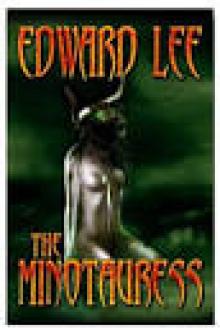 The Minotauress
The Minotauress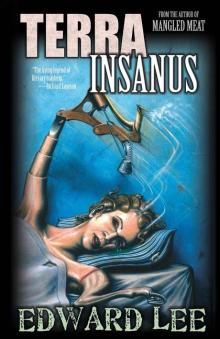 Terra Insanus
Terra Insanus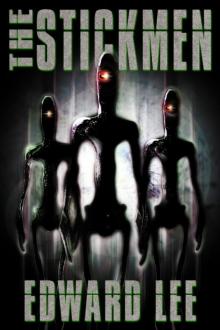 The Stickmen
The Stickmen Flesh Gothic by Edward Lee
Flesh Gothic by Edward Lee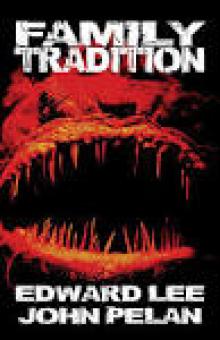 Family Tradition
Family Tradition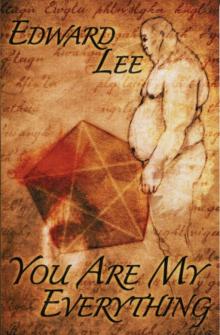 You Are My Everything
You Are My Everything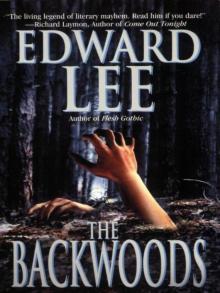 The Backwoods
The Backwoods The Teratologist
The Teratologist Smoke and Pickles
Smoke and Pickles Buttermilk Graffiti
Buttermilk Graffiti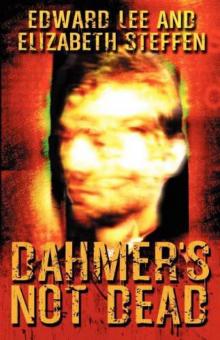 Dahmer's Not Dead
Dahmer's Not Dead Quest for Sex, Truth & Reality
Quest for Sex, Truth & Reality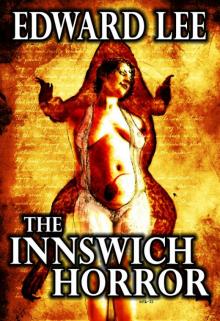 The Innswich Horror
The Innswich Horror Brides Of The Impaler
Brides Of The Impaler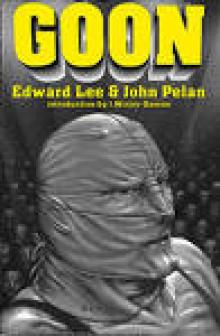 Goon
Goon Trolley No. 1852
Trolley No. 1852 Sacrifice
Sacrifice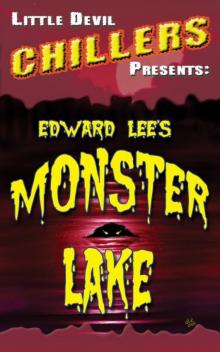 Monster Lake
Monster Lake Succubi
Succubi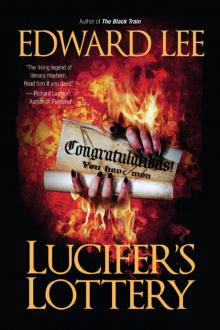 Lucifer's Lottery
Lucifer's Lottery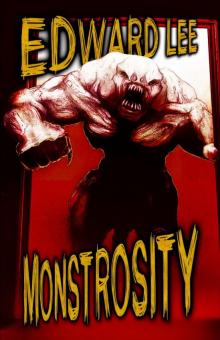 Monstrosity
Monstrosity The House
The House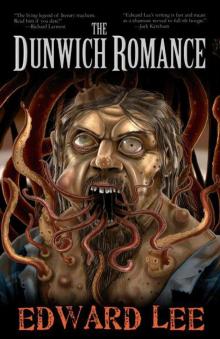 The Dunwich Romance
The Dunwich Romance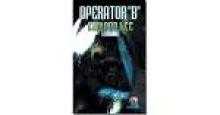 Operator B
Operator B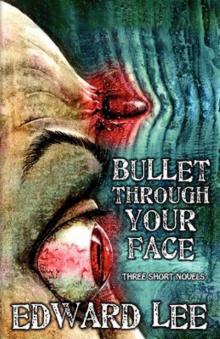 Bullet Through Your Face (improved format)
Bullet Through Your Face (improved format)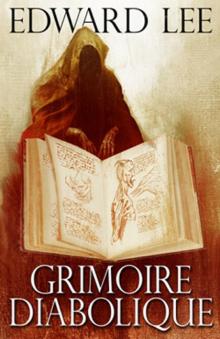 Grimoire Diabolique
Grimoire Diabolique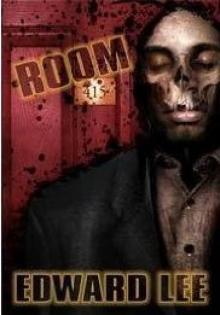 Room 415
Room 415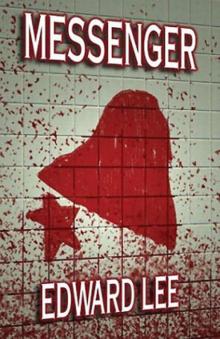 The Messenger (2011 reformat)
The Messenger (2011 reformat)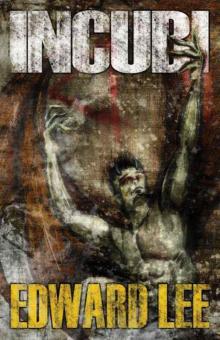 Incubi
Incubi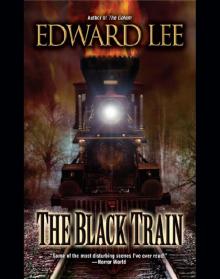 The Black Train
The Black Train House Infernal by Edward Lee
House Infernal by Edward Lee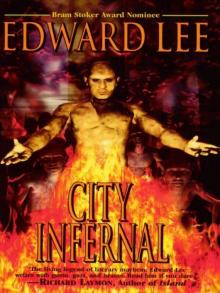 City Infernal
City Infernal Creekers
Creekers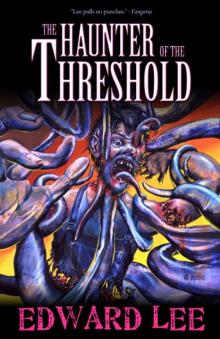 The Haunter Of The Threshold
The Haunter Of The Threshold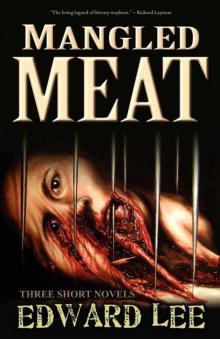 Mangled Meat
Mangled Meat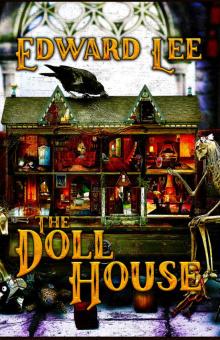 The Doll House
The Doll House Header 2
Header 2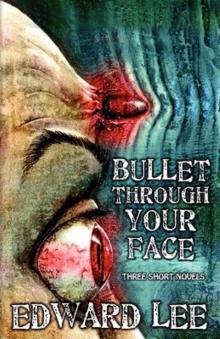 Bullet Through Your Face (reformatted)
Bullet Through Your Face (reformatted)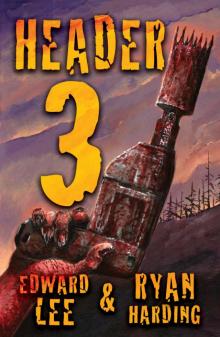 Header 3
Header 3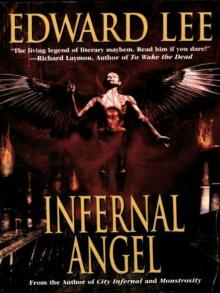 Infernal Angel
Infernal Angel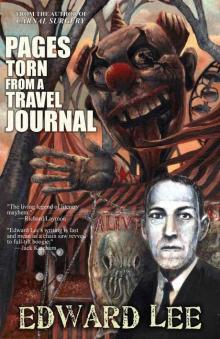 Pages Torn From a Travel Journal
Pages Torn From a Travel Journal Edward Lee: Selected Stories
Edward Lee: Selected Stories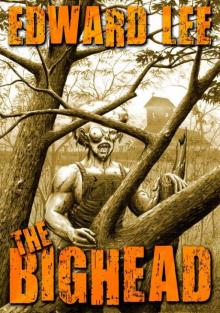 The Bighead
The Bighead The Chosen
The Chosen